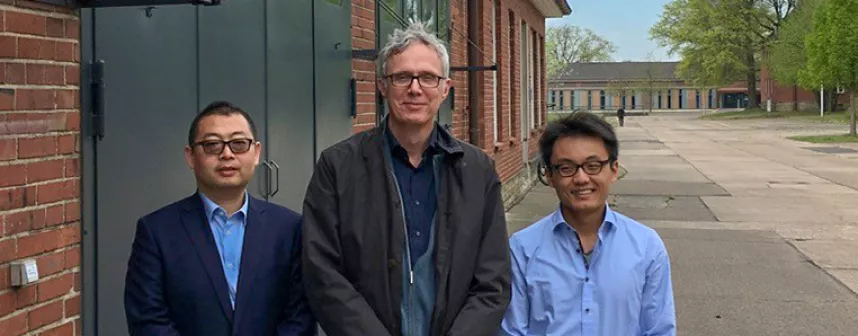Treatment of saline wastewater during algae utilization: German-Chinese research project at Jacobs University Bremen
May 14, 2019
Algae farming is widespread in China. The macroalgae Laminaria is mainly used for food in China but its bioactive ingredients are also used, for example, in cosmetics, dietary supplements or as an additive to animal food. The industrial processing of Laminaria produces wastewater with a salinity of around 20 percent. A team led by Dr. Laurenz Thomsen, Professor of Geosciences at Jacobs University, and Postdoc Dr. Song Wang wants to clean this high-salinity wastewater with microalgal technology.
, The algae production plant in the Chinese Shandong province to be used in the research project (source: L. Thomsen).The cooperation partner is Shandong Haizhibao Ocean Science and Technology Co Ltd. Haizhibao is currently the biggest provider for macroalgae in China, with offshore algae-farms covering 70 km2. "From the extremely salty process water at the facilities on land, we want to isolate and identify local microalgae that can grow in these hypersaline wastewater," explains Dr. Song Wang. "The aim is to clean the wastewater with the cultivation of microalgae and at the same time produce high-value microalgal products for subsequent marketing.”
The project started in March 2019 and will run for one year. It is financed by the government of the Shandong province, China, in the project of “Taishan Expert” with 260,000 Euros. Dr. Thomsen was announced as Taishan Expert for the Shandong province in September 2018.
